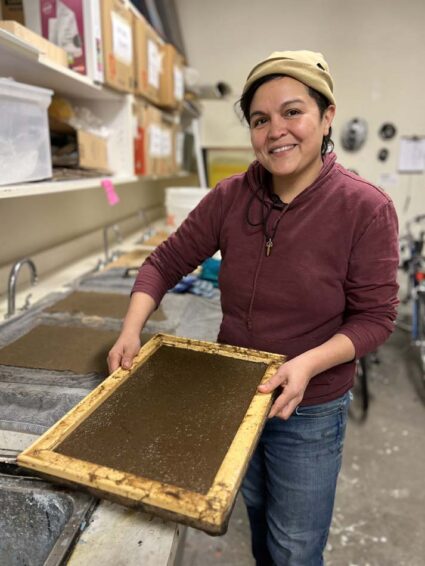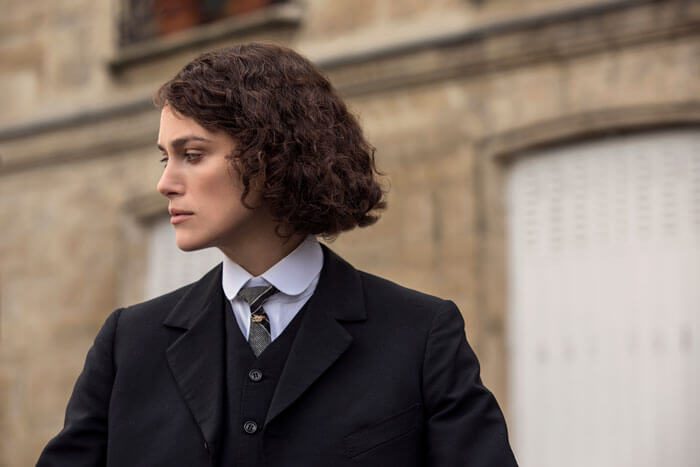
Credit: Robert Viglasky / Bleecker Street
It’s the late nineteenth century in France, and the haircuts are terrible. Frizzy, voluminous bangs, handlebar mustaches with three-inch goatees. Clearly the world is waiting for Colette, née Sidonie-Gabrielle Colette, the stridently bisexual author of Gigi, Chéri, and Vagabond. I was eager to see her life depicted on screen in Colette (directed by Wash Westmoreland), replete with lovers and artists and adventures in Paris and writing that scandalized just about everyone. While my disappointment was unmistakable when the film started off with Colette’s (Keira Knightley) marriage to Henry Gauthier-Villars aka “Willy” (Dominic West), I was willing to wait patiently while she righted her course and charged off on her own into the literary scene. It turns out, I waited the entire film for this to happen. In fact, I’m still waiting.
In a version of her life that barely passes the Bechdel test, we see just how trapped Colette was in her first marriage. When she begins to write, she writes for her husband, who needs a new novel and is far too arrogant to write his own. Colette pens four bestselling Claudine novels, based on her own adolescence in the French countryside, and all are published under Willy’s name. Some of the writing comes only when her husband locks her in a room and refuses to let her out until she has written. Yet she keeps writing for him, for years—long after she discovers her husband’s ongoing infidelities with just about every other woman in Paris; after her own blossoming relationship with another woman, Mathilde de Morny (“Missy”), the Marquise de Belbeuf, demonstrates just how much she doesn’t need Willy; after her fantastic choppy bob goes viral. Willy, meanwhile, relies on Colette for his income, for constant ego-boosting, for someone he can manipulate and cast aside. His muse, he calls her. And she calls herself the same.
There’s good reason we remember Colette among the greatest French writers of the twentieth century and we remember Willy not at all.
After Willy has sold the copyright to her work for a song, Colette realizes how much she has given up to stay married to him. (It’s eerily similar to the moment that frames Björn Runge’s The Wife, when a woman watches her husband accept the Nobel Prize for the books she wrote.) When Colette finally divorces Willy, admittedly not an easy legal feat in the time period, she travels the world, performing on stage, and begins to write her own work, which swiftly outpaces the Claudine novels. There’s good reason we remember Colette among the greatest French writers of the twentieth century and we remember Willy not at all. But casual viewers might only know about her literary stardom from reading the title cards that come up after the film has ended, alongside photos of the real Colette, which explain what she went on to do after her first marriage ended. Not only do these brief glosses of her most important creative years feel like a real wasted opportunity—I want to see a film about that Colette—but they also attempt to turn what was actually an unconventional love life (three marriages to men, several long-term and short-term female partners throughout) into a neatly wrapped-up marriage plot. The cards tell us only that Colette spent seven years with Missy, who transitioned during the film from she/her to he/him. Which allows the director to pass Colette from one him to another. As a queer viewer, I found this reductive and suspiciously convenient, to say the least.
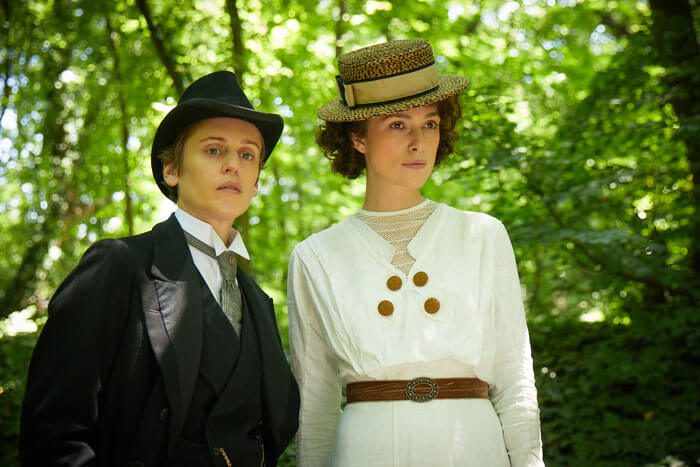
To counter this narrative tidiness, might I suggest that the most important takeaway from the film Colette is the imperative to read Colette’s novels. (Also recommended: Michelle Pfeiffer starring in Chéri (directed by Stephen Frears) in a seductive and charming roman à clef.)
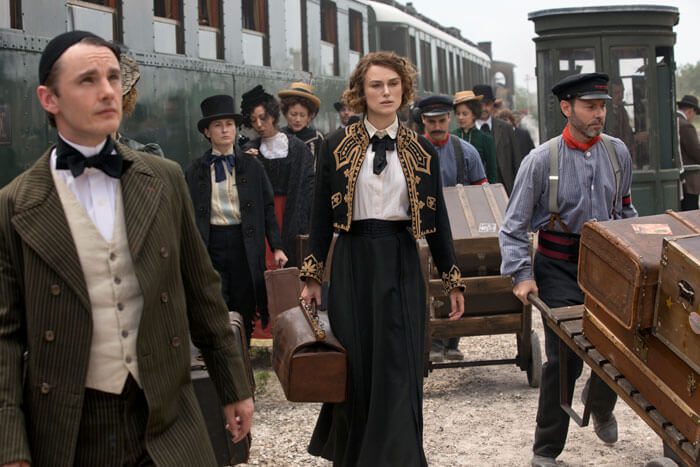
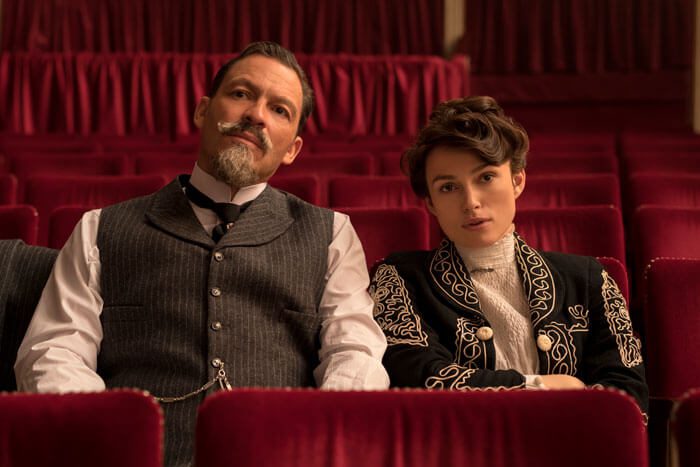
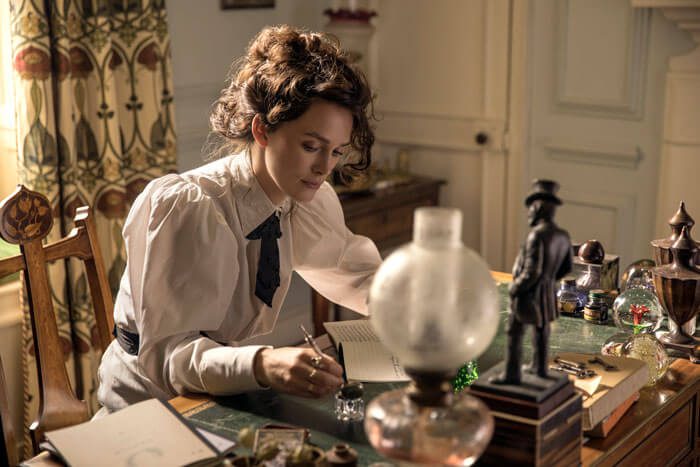
Credit: Robert Viglasky / Bleecker Street.
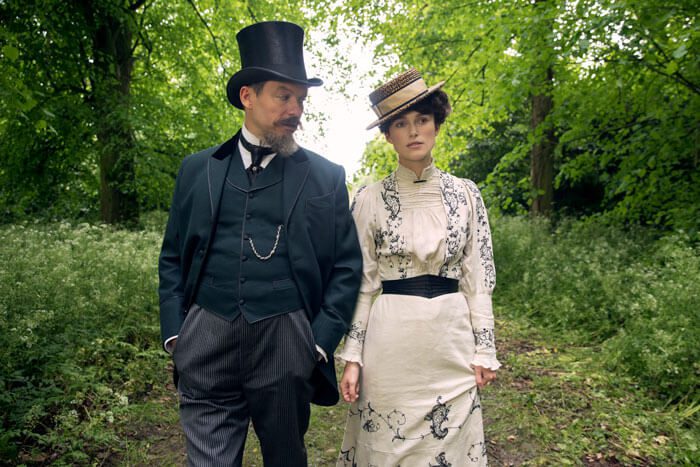
release. Credit: Robert Viglasky / Bleecker Street.
